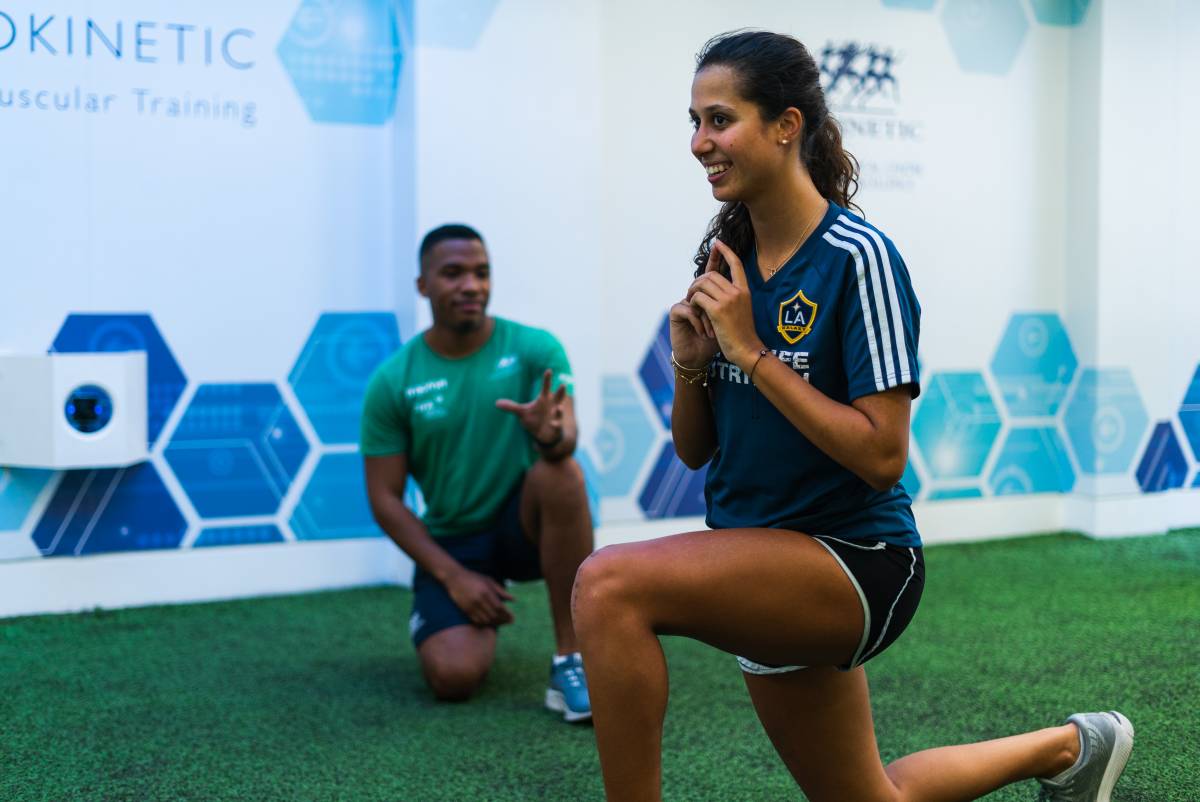ISOKINETIC EXPANDS ITS WOMEN'S INJURY PROGRAMME AS STUDY SHEDS LIGHT ON ACL INJURIES
Isokinetic, a London-based injury prevention, treatment and rehabilitation clinic, is to expand its programme for women athletes who have had, or are at risk of having, an anterior cruciate ligament (ACL) or other injury.
It made the announcement as a study on hamstring injuries in professional female footballers in various European countries appeared in the Knee Surgery, Sports Traumatology and Arthroscopy journal. Oublished in May, the paper was written by Jan Ekstrand from Linkoping University in Sweden, along with researchers from the Football Research Group in Sweden and the Isokinetic Medical Group, London.
The team members, who measured 21 risk factors during the 2020-2021 football season, concluded that ‘most risk factors for hamstring injuries are extrinsic in nature and associated with the club, the team, and the coaching staff, and not the players themselves’.

The paper highlights factors such as a lack of regular exposure to high-speed football actions during training, having to play two or three matches a week and the load placed on players. Another issue was a lack of communication between medical staff and coaching staff.
This research is showing that the main contributing factor in women’s injury in elite sport is dependent on club and coaching staff and not on any factors around the player themselves [Matthew Stride, Isokinetic]
Jesus Olmo, an Isokinetic sports doctor and Real Madrid FC's former medical director, said that it was essential to provide women footballers playing at an elite level a supportive infrastructure.
Dr Olmo added: ‘We believe that prevention is key and [that] it is crucial to assess players before they experience injury to better understand their unique movement patterns and strategise optimised ways of movement that will keep the individual healthy for longer.’
Matthew Stride, an Isokinetic sports doctor and Brentford FC’s former club doctor, said: ‘We need to protect our players! There are significant cultural, developmental and biomechanical differences in women’s football. However, this research is showing that the main contributing factor in women’s injury in elite sport is dependent on club and coaching staff and not on any factors around the player themselves.'
Dr Stride added: ‘We’ve got a big job to do in raising the expectations of conditioning and protection of women players. They deserve better and we hope that this new dedicated programme can provide the support, foresight and protection that they need.’
Isokinetic London, a FIFA medical centre of excellence, treats many footballers – both recreational and professional. Each patient's journey starts with a doctor-led pathway beginning with a consultation with an expert sport science doctor who oversees her ongoing treatment.
The programme includes
- analysis in the clinic’s biomechanical lab (Green Room) assesses players’ movement patterns with the Movement Analysis Test
- targeted neuromotor training in the Green Room with augmented and real-time feedback on video-walls to optimise movements and neuromuscular control
- additional tests include threshold test and isokinetic test, to check the player’s resistance to fatigue and muscle strength
- using GPS tracking technology as a preventive measure to track workloads throughout the competitive season. This allows doctors to understand the work done by each athlete and helps them to prepare personalised programmes
- treatment and technology are available in a building that includes a hydrotherapy pool, treatment rooms and gym
- patients exercising with other professional athletes, including ballerinas, rugby players and runners in a ‘high-energy positive environment’
To see the full version of the study – titled Most modifiable risk factors for hamstring muscle injury in women’s elite football are extrinsic and associated with the club, the team, and the coaching staff and not the players themselves: the UEFA Women’s Elite Club Injury Study – click
Isokinetic's approach is that 'exercise is medicine, treating the whole person in a unique environment to optimise healing and positive change'. For further information about Isokinetic London, click or follow it on Instagram
To read PhysioUpdate's article about Isokintetic's international football medicine event in May, click
Author: Ian A McMillan
Share it with














